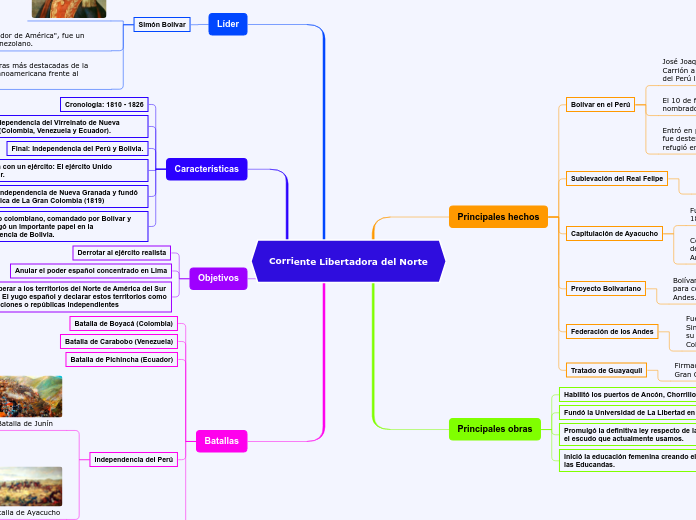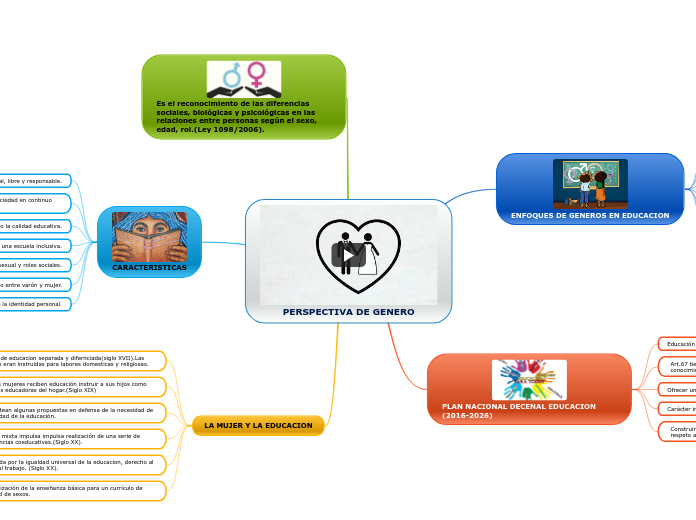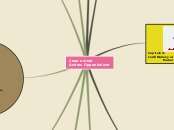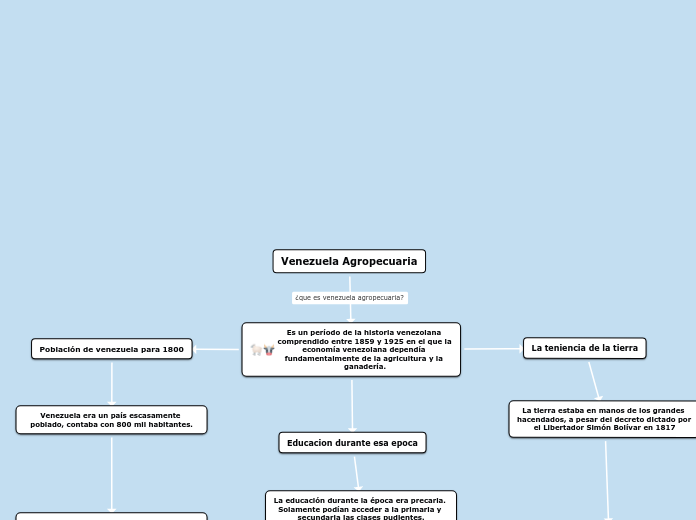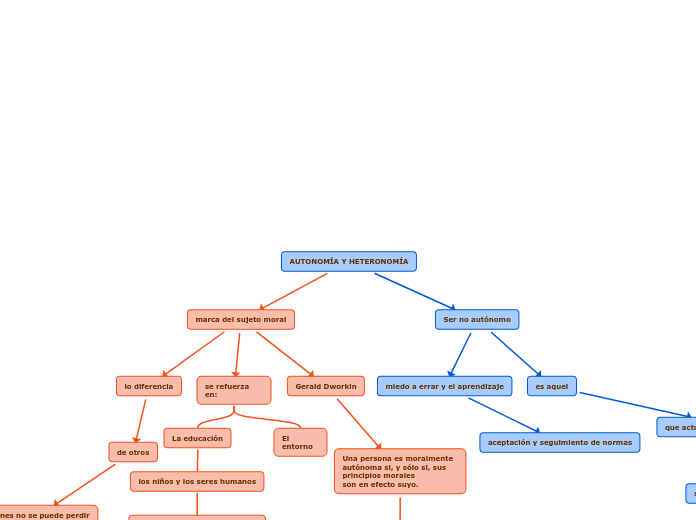Corriente Libertadora del Norte
The part of speech is a category to which a word is assigned according to its syntactic functions. In English the main parts of speech are noun, pronoun, adjective, determiner, verb, adverb, preposition, conjunction, and interjection.
Batallas
A preposition is one of the most exciting parts of grammar. A preposition is used to describe the location of something in relation to something else.
Subtopic
Independencia del Perú
Participle preposition consists of words that end in “ing”.
Batalla de Ayacucho
Se desarrolló en la Pampa de Quinua en Ayacucho, Perú, el 9 de diciembre de 1824.
Significó el final definitivo del dominio administrativo virreinal hispánico en América del Sur.
Fue el último gran enfrentamiento dentro de las campañas terrestres de las guerras de independencia hispanoamericanas
Batalla de Junín
Fue uno de los últimos enfrentamientos que sostuvieron los ejércitos realistas y patriotas en el proceso de la independencia del Perú, el 6 de agosto de 1824
Batalla de Pichincha (Ecuador)
When a preposition consists of more than one word, it is called double preposition.
Batalla de Carabobo (Venezuela)
Compound preposition consists of two or more words.
Batalla de Boyacá (Colombia)
When a preposition consists of one word it is called single or simple preposition.
Objetivos
An interjection is used to express emotion in a sentence.
Think of other interjections!
Liberar a los territorios del Norte de América del Sur de El yugo español y declarar estos territorios como naciones o repúblicas independientes
Anular el poder español concentrado en Lima
Derrotar al ejército realista
Características
An adverb is used to describe a verb, but it can also describe an adjective or another adverb.
Adverbs normally help paint a fuller picture by describing how something happens.
El ejército colombiano, comandado por Bolívar y Sucre, jugó un importante papel en la independencia de Bolivia.
Logró la independencia de Nueva Granada y fundó la República de La Gran Colombia (1819)
Contaban con un ejército: El ejército Unido Libertador.
The intensifiers strengthen adverbs adjectives and adverbs and down- toners make them weaker.
Final: Independencia del Perú y Bolivia.
Inicio: Independencia del Virreinato de Nueva Granada (Colombia, Venezuela y Ecuador).
Cronología: 1810 - 1826
Líder
A numeral is a word or phrase that describes a numerical quantity.
Some theories of grammar use the word 'numeral' to refer to cardinal numbers that act as a determiner to specify the quantity of a noun, for example the 'two' in 'two hats'.
Simón Bolívar
Fue una de las figuras más destacadas de la emancipación hispanoamericana frente al Imperio español.
Llamado el "Libertador de América", fue un militar y político venezolano.
Principales obras
A noun is defined as a person, place, thing or idea. Proper nouns always begin with a capital letter. Common nouns, which are general words, such as 'cars,' are not capitalized.
Inició la educación femenina creando el Colegio de las Educandas.
Promulgó la definitiva ley respecto de la bandera y el escudo que actualmente usamos.
Fundó la Universidad de La Libertad en Trujillo.
Countable nouns are nouns that can be counted, even if the number might be extraordinarily high.
Uncountable nouns are nouns that come in a state or quantity which is impossible to count; liquids are uncountable, as are things which act
like liquids.
Habilitó los puertos de Ancón, Chorrillos y Arica.
Proper nouns are the names of specific people or places. They should always begin with a capital letter.
Principales hechos
A verb is an action word or 'doing' word that signifies movement in some way.
Tratado de Guayaquil
Firmado el 22 de septiembre de 1829 entre la Gran Colombia y el Perú
Federación de los Andes
An auxiliary verb helps the main (full) verb and is also called a 'helping verb.' With auxiliary verbs, you can write sentences in different tenses, moods, or voices.
Fue un estado proyectado por el Libertador Simón Bolívar en 18261 y que debía incluir bajo su liderazgo las nacientes repúblicas de Colombia, Perú y Bolivia.
Proyecto Bolivariano
A participle is a verb form that can be used as an adjective or to create a verb tense. There are two types of participles: Present participle (ending -ing) and Past participle (usually ending -ed, -d, -t, -en, or -n).
Bolívar intentó unir Gran Colombia, Perú y Bolivia para convertirlas en la Confederación de los Andes.
Capitulación de Ayacucho
A modal is a type of auxiliary (helping) verb that is used to express: ability, possibility, permission or obligation. The main modal verbs in the English language are: can, could, may, might, must, shall, should, will, would.
Con la firma de este tratado se reconoce la derrota definitiva de las fuerzas realistas en América del Sur.
Fue un tratado firmado el 9 de diciembre de 1824
Sublevación del Real Felipe
A linking verb connects the subject with a word that gives information about the subject, such as a condition or relationship.
Los sargentos Dámaso Moyano y Oliva se rebelaron por sueldos impagos. Entregaron el Real Felipe a los realistas en la persona de rodil.
Bolívar en el Perú
A verb with its own meaning: a verb that is not an auxiliary verb.
Entró en pugna con José de la Riva Agüero (que fue desterrado) y con José Torre Tagle (se refugió en el Real Felipe).
El 10 de febrero de 1824, Simón Bolívar fue nombrado Dictador del Perú.
José Joaquín Olmedo y José Faustino Sánchez Carrión a nombre del Congreso de la República del Perú llamaron a Simón Bolívar.
